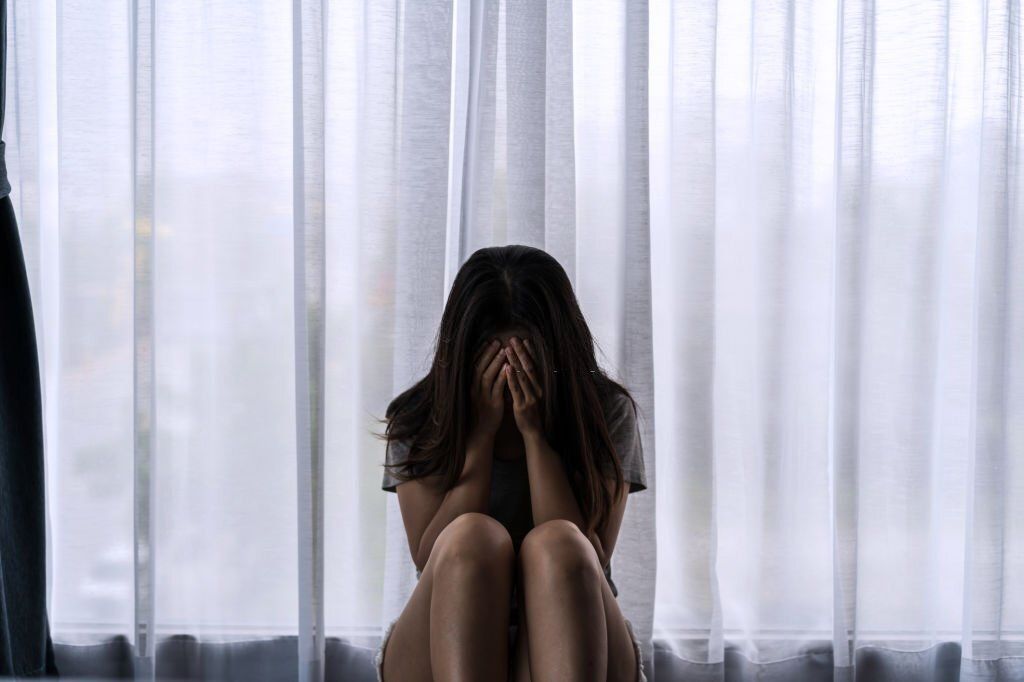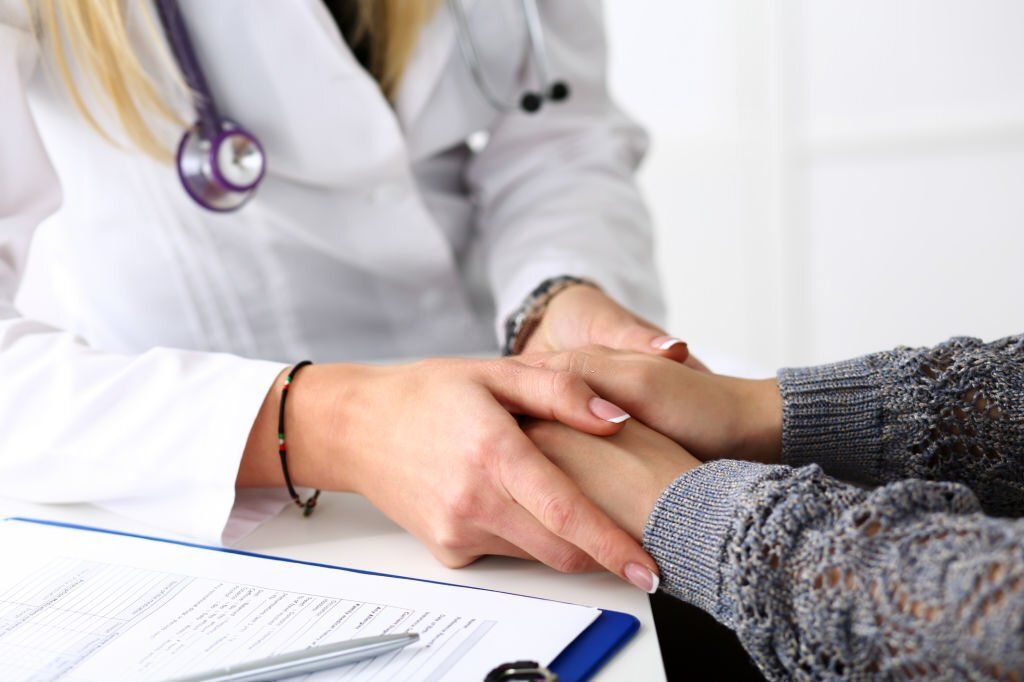Depression is a mental health disorder associated with more persistent and severe feelings of sadness. If anyone feels down in the dumps or just feels blue doesn't mean they are in depression.
Depression is a major mood disorder or major depressive disorder. Clinically depression is described as the imbalances of chemicals in the brain.
If you have been diagnosed with a major depressive disorder, that means you have experienced at least five depression symptoms every day for at least two weeks.
The common symptoms are feeling less interested in most daily activities, lack of happiness, and always feeling sad or worthless.
Depression - The Greatest Mood Disorder

You may get confused with depression and feelings of grief or sadness. Though both have some common features, there is a significant difference.
Normally grief is something people feel when they lose someone close or fail in some traumatic event. Usually, people can get rid of grief without any support. Or it is natural that after some time, grief will be demolished.
Depression usually includes self-loathing or a loss of self-esteem. A person with the major depressive disorder experiences constant sadness that can be life-threatening.
People are experiencing depression in many different ways. It may inhibit your daily activities, job, study, and relationships. As a result, people lose their productivity. Sometimes it can lead to chronic health conditions.
Depression can be highly recurrent. How Long Does Depression Last? It depends on the people, lifestyle, treatment, and environmental factors. And how long depression stays in your life; it may last for several weeks, months, or years.
Depression Symptoms
Major depression can have a variety of symptoms. Some affect our mood, and others affect our bodies.
However, depression signs and symptoms can vary from person to person.
General signs and symptoms
The common and general signs of depression are:
- Feeling sad, anxious, useless, worthless, or empty.
- Feeling hopeless and pessimistic.
- Crying or feeling of crying without any reason.
- Feeling bothered, annoyed, irritated, or angry
- Lack of interest in particular activities which once enjoyed.
- Lack of energy or fatigue.
- Lack of concentration and focus.
- Difficulty in remembering or making decisions.
- No physical activity.
- Talk less or talk more.
- More sleep or oversleeping.
- Appetite or weight loss.
- Sudden hunger.
- Chronic physical pain with no cause.
- Headaches, stomach pain, cramps, digestion problems.
- Thinking about death.
- Suicidal thoughts and self-harm.
- No social contact with friends and family.
- Drinking, using drugs, or participating in high-risk activities
- Reduced sexual desire.
Types Of Depression
There are two main types of depression; major depressive disorder and persistent depressive disorder.
Major Depressive Disorder
Major depressive disorder is a chronic form of depression. It consisted of persistent feelings of sadness, hopelessness, and worthlessness. Usually, these symptoms don't go away on their own.
In order to be diagnosed within two weeks, you must experience five or more of the following symptoms;
- Feeling depressed
- Loss of interest
- Weight loss or gain
- Sleeping a lot or sleepless nights.
- Fatigue
- Indecisiveness
- Suicide intrusive thoughts
When major depressive disorder turns severe or lasts over two weeks, it becomes endogenous depression.
Endogenous depression occurs without any stress or trauma. When there are no outside factors involved in depression, it is called Endogenous depression. Instead, it may be caused by genetic or biological factors.
Postpartum Depression
The most common known depression for women. Postpartum depression generally occurs after childbirth. Statistics shows that, out of 9, every 1 new mother suffers from postpartum depression.
Postpartum depression is thought to be encouraged by the dramatic hormonal changes during the period of pregnancy and after childbirth. Postpartum depression symptoms are:
- Feeling blue or moody
- Sudden feelings of crying.
- Chronic sadness and sorrow.
- Feelings of mental anguish.
- Thoughts of hurting the baby.
- Less interest in the baby.
- Not connected with the baby or unnecessary rude behavior with the baby or partner.
Persistent Depressive Disorder
It is clinically called dysthymia. However, the symptoms are mild and chronic. The most pathetic part of persistent depressive disorder is the symptoms may last for at least two years.
- Lose interest.
- Feel hopeless.
- Lack productivity.
- Have low self-esteem.
- Suicide intrusive thoughts
Reasons of Depression

Exposure to traumatic events, social isolation, prolonged stress, and poverty can make some people more vulnerable to long-term or recurrent depressive episodes.
Common causes contain:
- Brain chemistry- Chemical imbalances in the brain manage mood, thoughts, sleep, appetite, and behavior.
- Hormone levels- Female hormones like estrogen and progesterone change. During the menstrual cycle, postpartum period, or menopause.
- Family history - A family history of depression may trigger developing depression or another mood disorder.
- Early childhood trauma - when somebody gets traumatized by some events in their childhood, they usually develop depression in adulthood when they encounter fear and stressful situations.
- Medical conditions- Chronic illness, insomnia, chronic pain, Parkinson's disease, stroke, heart attack, and cancer can trigger depression.
Depressive episodes
Depression is an illness that is a combination of depressive episodes. An episode is when a person has depression symptoms for at least two weeks. On the one hand, persistent depressive disorder lasts for two or more years, whereas a major depressive episode, whether it occurs on its own or in the context of bipolar disorder, only has to last two or more weeks to be diagnosed.
How long do depressive episodes last? It depends on the length of the episode. Some may have recurrent episodes throughout their lifetimes. In that case, treatment is a must.
If anybody doesn't care or is left untreated, the symptoms can worsen, leading to significant impairment and interrupting relationships and jobs. Even other mental health problems may arise.
Remember, chronic depression can deteriorate physical and mental health and increase the risk factors of suicidal thoughts.
How Is Depression Treated?

Depression, endogenous depression, unipolar depression, or mental anguish are treatable illnesses. But people should start treatment as early as possible, and many mental health organizations have treatment plans based on depression episodes.
A combination of treatments or more than one medication may work fast. But it actually depends on person to person. Follow the agreed-upon treatment plan, whether this means regular therapy sessions, medication, group therapy, or abstaining from alcohol.
Medication
Antidepressants are commonly prescribed to treat depression.
Common antidepressants are:
- Selective serotonin reuptake inhibitors (SSRIs)
- Serotonin-norepinephrine reuptake inhibitors (SNRIs)
- Atypical antidepressants
Apart from this anti-anxiety medications can also help treat depression.
Psychotherapy
It refers to 'let's talk therapy.' Many hospitals and mental health organizations have Psychotherapy treatment options for mentally ill people.
Mental health professional generally helps to find out the reasons for depression. And based on the identification of reasons therapist suggests treatment.
Group Therapy
Regular therapy sessions, medication, group therapy, and abstaining from alcohol are also a set of treatments that a healthcare provider or a trained mental health professional conduct to help those who are going through a chronic condition.
Lifestyle Tips For Controlling Depression

Meditation: Try to meditate for at least 30 minutes a day. It will help you to relax your mind. And will increase inner peace. The medication also improves your sleep patterns.
Exercise: 30-minute exercise will make your brain active. It helps to increase the production of endorphins which is helpful in increasing joy and happiness.
Avoid Alcohol: Excess addiction to alcohol and other drugs will lead you to occasional depression. Reduce consumption of these drugs and intoxicative products.
Eat healthily: Eat a healthy diet as much as you can. It will boost your energy and physical strength.
Love Yourself: Concentrate on yourself more than anything else. Don't load your tiny heart and brain with tons of stress.
Take supplements: Many supplements are available in the market specially made to improve mood and mental health. You can take Vitamin D supplements. It is called sunshine vitamin that helps to remove the unnecessary sadness or feelings of being 'down in the dumps.', especially for those suffering from the seasonal affective disorder, most probably in the winter season.
Final Thoughts
National Institute of Mental Health reveals that 8.4% of U.S. individuals had at least one episode of major depression in 2020. How long depression can last actually vary drastically from man to man and will depend on a combination of factors, including the type of depressive disorder they have.
Also, depends on depression treatments. It is mandatory for individuals with depression to seek treatment. If you start depression treatment early, you can get rid of depression early. But sometimes, it takes a long time, even if you start medical treatment.
Depression is a serious mental illness. However, it is possible to live a full and happy life despite depression or any other mental health condition.
We just need someone who can understand our feelings and mental health conditions so that our loved ones can seek medical or social help to treat their depressed friends and family members.
Frequently Asked Question
Question 1: Is Major Depressive Disorder A Disability?
Answer: According to the Americans with Disabilities Act (ADA), depression is a psychiatric disability. This mood disorder can interfere with your ability to function on a daily basis, including your ability to work.
Question 2: How Long Do Depressive Episodes Last?
Answer: The duration of a depressive episode varies depending on the severity and treatment, as well as individual factors. It is most likely that a depressive episode will last between six and eight months on average duration.
Question 3: What's the difference between unipolar depression and bipolar depression?
Answer 3- The main difference between the two is that unipolar depression means there are no terms for abnormally soaring mood. And bipolar disorder contains symptoms of mania.
Question 4: What is endogenous depression?
Answer 4- Endogenous depression happens without the existence of stress or trauma. The primary reason is genetic and biological factors. That is why endogenous depression is called "biologically based" depression.
Question 5- what does it mean to feel blue?
Answer 5: Feeling blue meaning is feeling sad or feeling down. But it doesn't mean that it is referred to as a clinical depression. You can feel sad due to some adverse event in your life. This type of feeling is common and can be recovered on its own.


